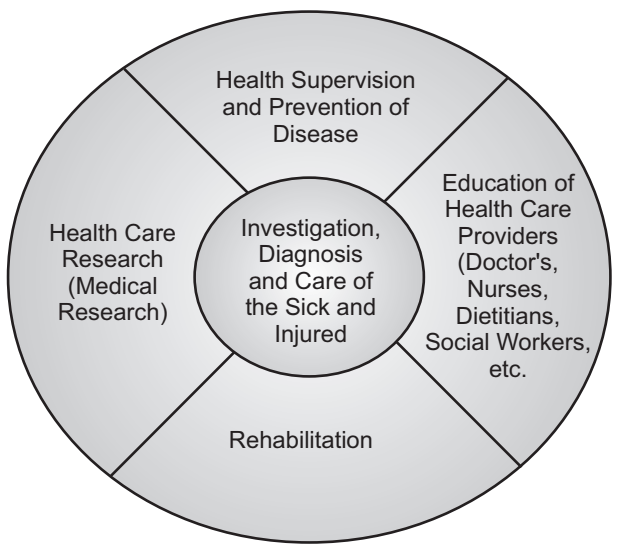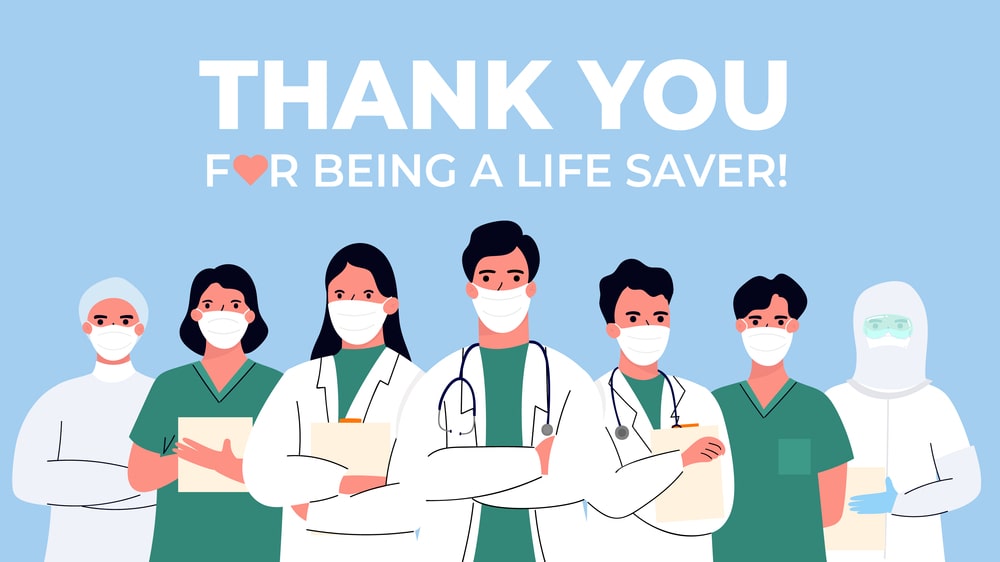Role and Responsibilities of Overall Medical Staffs: The medical unit of the hospital comprises the following personnel according to their designation and they are assigned to perform various activities as given below:
- Doctors
- Nurses
- Allied Health Professionals
- Support staff
Doctors
Table of Contents
The doctor can be the consultant as a specialist, the registrar of a hospital, the resident. All of them assess the patient’s medical care. Depending upon the type of hospital, interns or student doctors may also provide the treatment to the patients under the supervision of senior doctors.

Functions:
Depends upon the level of experience and their medical specialty:
- Senior Consultants: These are the specialist doctors who see the patients at specific time intervals mostly during the ward rounds and meetings.
- Registrars: These are the senior doctors and are responsible to supervise residents, interns, and student doctors.
- Residents: The resident doctors are responsible to look after patients on the ward and are under training for specialization. The resident doctor is based on the ward and is typically the patients often get in more contact.
- Interns: These are the medical students and they are engaged in further training after finishing graduation.
- Student Doctors: These are undergraduate medical student doctors who are supervised by the attending physician.
Nurses
Nurses manage most of the ongoing care and treatment services in a hospital. They assess, plan and administer the dose of the drug on a daily treatment basis.
Functions:
- Nurses are responsible for carrying out the treatment plan established by the physician.
- Nurse Unit Manager – runs the ward.
- Associate Nurse Unit Manager – helps and acts as nurse unit manager when he/she is off-site.
- Nurse Practitioners – highly skilled, have an advanced level of training.
- Special Nurses – such as; clinical nurse specialists, clinical nurse consultants, clinical nurse educators, triage nurses, emergency department nurses.
- Registered Nurses – provide a high level of day-to-day care and perform some procedures.
- Enrolled Nurses – They are responsible for the provision of basic medical care facilities under the observation of more senior nurses.
Allied Health Professionals
They are educated practitioners who work as a part of a multidisciplinary healthcare team. They assess, diagnose and treat health conditions and work to prevent disease and disability.
- Dieticians: They have specialized nutritional and medicinal training which helps them to determine and establish the person’s dietary needs and accordingly design the dietary plans. In which, dietician decides which food will satisfy the requirements and which they should avoid.
- Occupational Therapists: These practitioners are responsible to assess people’s ability to do their daily activities.
- Pharmacists: They supervise the use of drugs in the hospital. They are also involved in the provision of education on how to safely and effectively consume the prescribed drugs.
- Physiotherapists: They examine and treat the people who have difficulty in physical movement and also help them to function better physically and become more independent.
- Speech Therapists: They work closely with patients who have any disorder that interferes with communication or swallowing issues. They also evaluate the thought process involved in communication.
- Interpreter Services: The hospital provides an interpreter who has special skills in medical terminology for an unresponsive patient (hard hearing issues) and for people who are not able to communicate in the commonly spoken language.
- Rapid Response Team: These are the groups of designated hospital staff, mostly a doctor, nurses, and respiratory therapists. These teams are very alert and quickly come to a patient’s room if there is any warning that the patient’s condition is deteriorating.
Other Hospital Staff
- Clinical Assistants: They are responsible to take care of ward housekeeping.
- Patient Service Assistants: Takes care of meals and any other requirements of patients.
- Porters: Responsible for taking care of the patient when lifting and during transport.
- Volunteers: help with fundraising and ward visits.
- Ward Clerks: These are the hospital staff and are available 24 hours on the ward reception desks.
Following are the overall functions of the medical staff with respective of patient care and hospital management policy.
- To advise the governing body on medical concerns.
- To manage the accountability of the quality care services to the patients of the hospital.
- To request, assess and perform upon medical staff committees’ reports.
- To examine the professional ethics of hospital staff and to take corrective action as indicated.
- To design, implement, and evaluate the policies of medical staff.
- To advise the administrator (CEO) on all medical administrative matters.
Make sure you also check our other amazing Article on : Classification of Hospital
